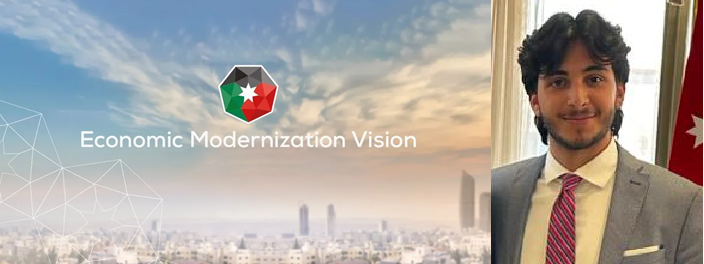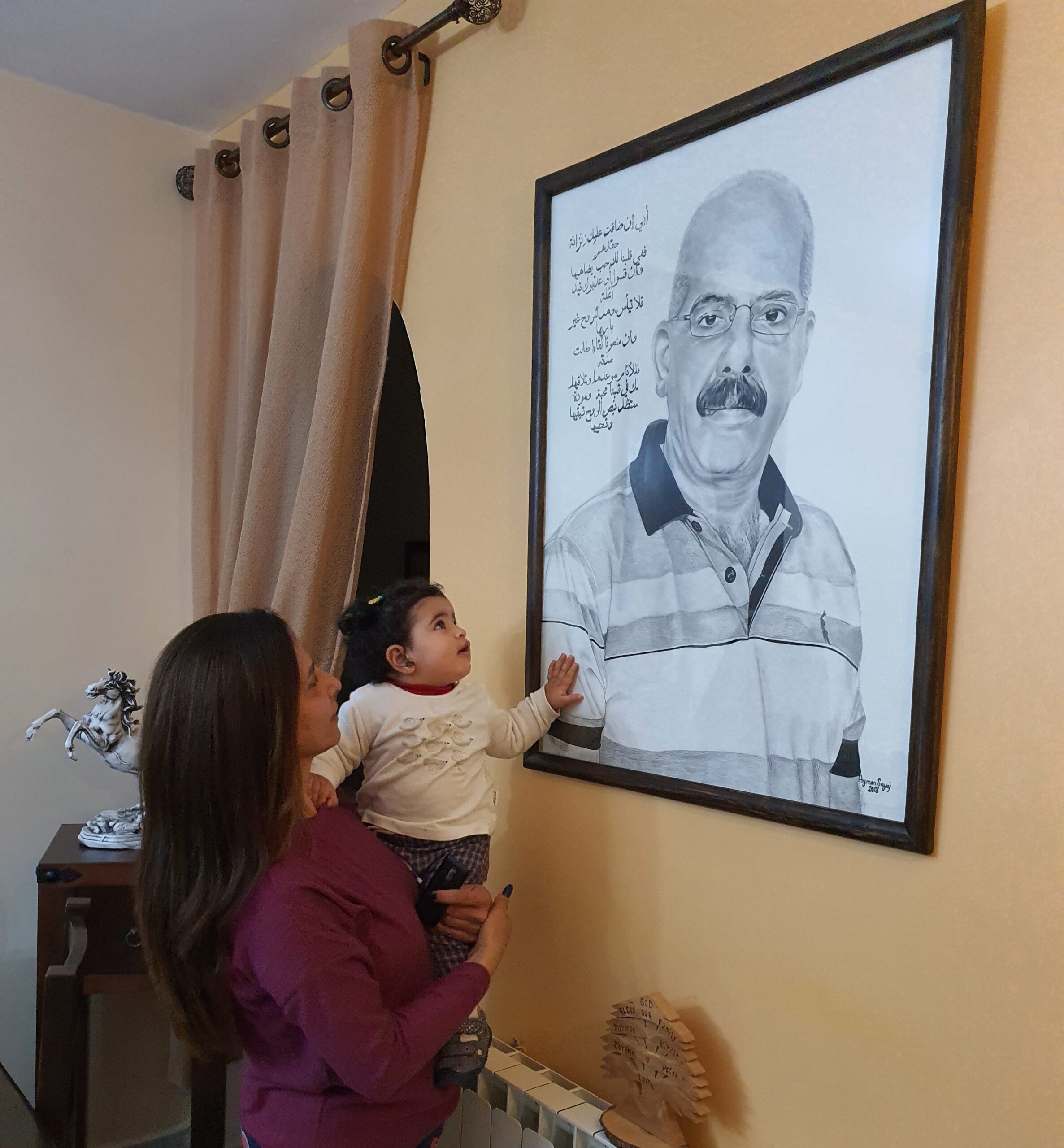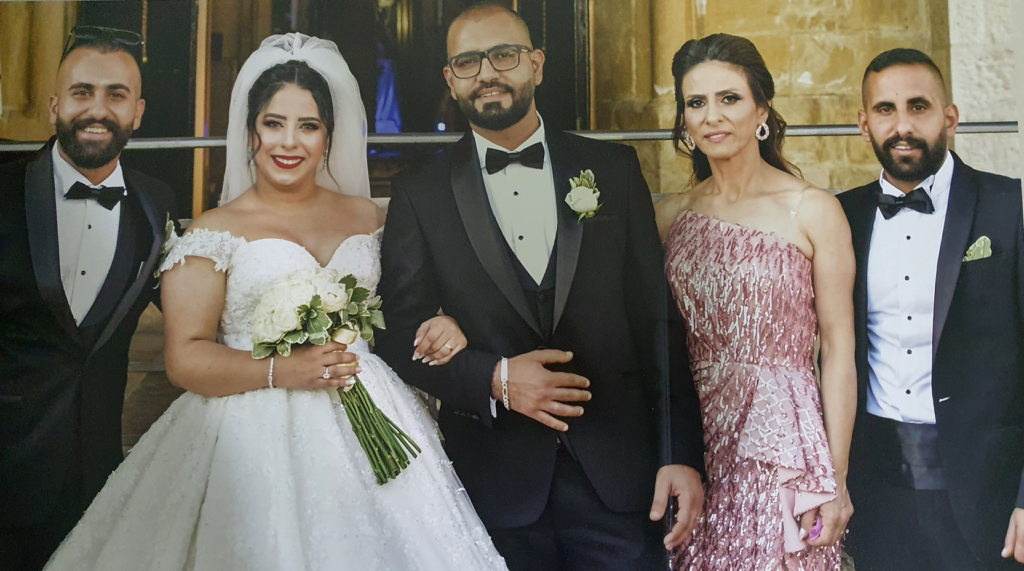
Previous Jordan’s modernization vision lacks public trust

Hind Shraydeh – Special to Milhilard.org
At the church door, before the white ribbon was untied, and each couple was preparing to line up in order for their turn at the wedding Nirfat felt a pang in her chest. Her eyes filled with tears, and she struggled not to cry and spoil the serenity of a wedding that had been long and repeatedly postponed. She gathered her wounds and held herself together. She did not want to direct attention towards her, her only concern at that moment was her firstborn (Ibrahim) and completing his wedding, and spreading joy among all family and friends.
Nirfat was to the left of the groom, but the groom’s father was absent due to his unjust arrest.

All she was waiting for that day was to clasp her hand in her husband’s arm, and walk with him gently to the tunes of the church organ, standing in the middle of the first row in front of the altar, and meeting the bride’s family on the other side, fully dressed and with her postponed joy that had lasted nine years in her eyes.
This is what actually happened to Nirfat, but her husband was not with her. Instead, she held the arms of her two sons, Peter on the right and Laith on the left, while her husband, the prisoner Marwan Muadi (62 years old), was sitting on a “barsha” in the Israeli Rimon Prison, adjusting his watch and giving free rein to his imagination, as it danced in the Negev desert with joy and sorrow at a wedding that he did not attend physically, but attended in spirit, thought and conscience.
Nirfat Tayeh, a Palestinian woman from the town of Taybeh, east of Ramallah, was robbed by the occupation from their home in the village of Jifna, east of Birzeit which was demolished by the Israelis. After her husband’s arrest and the loss of their home she was left to raise three young men alone. At the time, she did not know how to buy household items, as Marwan took care of all the house’s needs and brought her everything she needed. “At first, she did not understand the matter,” she struggled a lot, and did not know what to do.
“After Ibrahim was sentenced to eight years in prison, I had no choice but to get up and follow everything on my own,” says Nirfat.
Between the court sessions, she had to shuttle around. Between prisoner defense organizations, Red Cross buses heading to the prisons at four in the morning, the horrific searches at the entrance of the prison. She had to adjust to the transfer between Ofer, Nafha and Rimon prisons, the security searches, the quick visits that did not exceed 45 minutes behind glass and the scrambled phones, the greetings that arrived and those that did not; children growing up, until they graduated from universities.
“All the arrangements revolved around Marwan’s freedom, but the Zionist prosecution shattered the family’s dreams from the roots,” says the wife of detainee Marwan Muadi.
Ibrahim grew up and engineered his wedding date according to the date after his father’s expected release from captivity in 2021. All the arrangements revolved around Marwan’s freedom, but the Zionist prosecution shattered the family’s dreams from the roots. They appealed the court’s decision just two months before the end of his term would have ended and thus their hopes of freedom were shattered. Marwan’s sentence was increased to 22 years, in addition to paying compensation of 50,000 shekels (about $14,000 US).
The 14-year extension of the sentence was like a guillotine for the family. It was as if they had gone through the experience of his arrest and trial again. The same tension, anxiety, and sadness prevailed over the family again, and the wedding date was postponed indefinitely until the family could absorb the shock.“ This is an occupier who has no control over it,” says (Nirfat).
The occupation spoiled the joy of the Maadi family, and it was not easy for Nirfat to have the entire nightmare renewed in front of her for the second time with a ruling that was three times higher than before, but she did not allow darkness to penetrate her home.
She quotes the Palestinian writer Ghassan Kanafani saying: “You will not be able to find the sun in a closed room.” Following the example of Ghassan Kanafani, Nirfat walked with the hope of “the little lamp[2],” gathered the pain, and opened the windows of her soul to receive the light.
She did not allow sadness to overshadow the family’s joy and postpone the wedding any longer, and she resolved to hold it the following year, the ninth year of his arrest. She dressed up, patched up her wound, and walked towards the altar with pride and dignity.
Father Firas Arida, the Latin parish priest in Jifna at the time, says that Nirfat is a truly struggling Palestinian woman, committed to the Brotherhood, and regularly comes to the House of the Lord, observes Sundays and holidays, always remembers (Marwan) in all her prayers, lights candles for him all the time, and prays for his health, patience, and strength. Arida continues his talk saying: “Behind every great man is a pious woman, and that is indeed Nirfat.”
As for Marwan, the priest described him as a simple and beloved man, who works in one of the UNRWA offices, and participates every year in the apricot festival in the village. Arida continues saying: “I knew him for about four years in the parish, during which I knew him as the leader of the scout group in Jifna, and the person in charge of the cafeteria and the church hall. He was a pious man, uncompromising, and a man of truth.” I visited him once after much effort and coordination, a few days before Easter.
There was a time before that, which took five months of coordination and procrastination, when I reached the prison gate, was searched harshly, and forced to return with a Bible and two Eucharists, which I had brought with me specifically to complete the sacrament of the Holy Eucharist with him.
When I succeeded the second time, and snatched a private visit with him, Marwan was shocked when he saw me, and a complete silence prevailed between us. He stuttered a lot, and could not speak at length, and instead cried and hugged. He missed everyone, his wife, his children, the scouts, the parish, and every young and old person in the town. I gave him the Body of the Lord, and shared communion with him again in front of the jailers, and he continued to ask me about the condition of everyone, young and old, and how his beloved village, Jifna, had become. Many moments passed through Nirfat’s memories while she played the role of mother and father together. From a raw woman, sitting with the food while it was cooking, to a solid woman, who was not broken by circumstances, but rather made a more cohesive and stronger version of herself, a version capable of cutting through the sea and storms with faith and hope. “It wasn’t easy at all. It was difficult for me when my little one Laith passed high school, and he was very attached to his father.
I couldn’t keep up with a young man his age, with all his senses and deep need for his father, and what was raging in his soul from the “nightmare of that summer night” in 2012, when the thieves came and took Marwan from us. But I learned to befriend him until he passed the stage, and then he jumped like a young lion to university,” says Nirvet.
The Muadi family’s day is not without its troubles. They are constantly worried about Marwan’s health. Before his arrest, he had undergone a heart bypass, and he still needs an annual stress test. “I worry a lot about him, especially in these circumstances, and amidst the deliberate medical neglect that sick prisoners suffer from by the prison administration,” says Nirfat. “I wonder if they give him his blood pressure medication every day, but I calm down and entrust him, my family, and my situation to the Lord Jesus Christ, and I continue my day.”
Nirfat has become a grandmother to a little girl whom she taught the word “Sayyidou” to, pointing to Marwan’s picture hanging in the front of the house, so that the little girl would get used to him and get used to memorizing her family’s history from a grandfather who is in the occupation’s prisons, to a great-grandfather who was martyred before her, and an entire family lineage of fighters. Faith and devout prayer; Nirfat walks towards a tomorrow full of hope with a prisoner deal that returns her husband to the family, and returns with her nearly five thousand male and female prisoners to the bosom of their families, where they become able to resume their lives, like any normal family in the world.
[1] Al-Barsh: The prisoner’s bed, made of iron, and consisting of two floors.
[2] The Little Lantern: A children’s story by the Palestinian writer Ghassan Kanafani, which is the first work directed at children written and illustrated by Ghassan Kanafani, and he turned this story into a theatrical work.


تكافح مجلة “ملح الأرض” من أجل الاستمرار في نشر تقارير تعرض أحوال المسيحيين العرب في الأردن وفلسطين ومناطق الجليل، ونحرص على تقديم مواضيع تزوّد قراءنا بمعلومات مفيدة لهم ، بالاعتماد على مصادر موثوقة، كما تركّز معظم اهتمامها على البحث عن التحديات التي تواجه المكون المسيحي في بلادنا، لنبقى كما نحن دائماً صوت مسيحي وطني حر يحترم رجال الدين وكنائسنا ولكن يرفض احتكار الحقيقة ويبحث عنها تماشيًا مع قول السيد المسيح و تعرفون الحق والحق يحرركم
من مبادئنا حرية التعبير للعلمانيين بصورة تكميلية لرأي الإكليروس الذي نحترمه. كما نؤيد بدون خجل الدعوة الكتابية للمساواة في أمور هامة مثل الإرث للمسيحيين وأهمية التوعية وتقديم النصح للمقبلين على الزواج وندعم العمل الاجتماعي ونشطاء المجتمع المدني المسيحيين و نحاول أن نسلط الضوء على قصص النجاح غير ناسيين من هم بحاجة للمساعدة الإنسانية والصحية والنفسية وغيرها.
والسبيل الوحيد للخروج من هذا الوضع هو بالتواصل والنقاش الحر، حول هويّاتنا وحول التغييرات التي نريدها في مجتمعاتنا، من أجل أن نفهم بشكل أفضل القوى التي تؤثّر في مجتمعاتنا،.
تستمر ملح الأرض في تشكيل مساحة افتراضية تُطرح فيها الأفكار بحرّية لتشكل ملاذاً مؤقتاً لنا بينما تبقى المساحات الحقيقية في ساحاتنا وشوارعنا بعيدة المنال.
كل مساهماتكم تُدفع لكتّابنا، وهم شباب وشابات يتحدّون المخاطر ليرووا قصصنا.